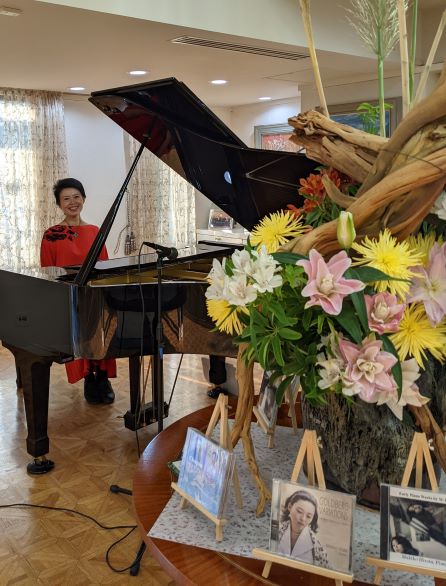This is the English translation of my Japanese article to appear in Nikkan San on October 3, 2021, as a part of my bi-weekly column, “The Way of the Pianist.”
I wonder if it’s true with other professions.
As I pursue my musical path, I find that music is full of lesson on how to live, and be, better.
For example on the topic today: the balance between the past, the present and the future. I think about this every day in my practice, and every time I perform. The past offers references. However, if you are too caught up in the past, traumatized by your past mistakes or overconfident from your past successes, it can give you biases that make you misread the reality at hand. Dwelling on the past holds you back from having clear visions about the future, too. On the other hand, if you only look forward to the future, you may not learn from the past, or miss the beauty of being in the moment. It’s just as in life.
Some say music is an imaginary architecture built over time. Some compare the unfolding of a piece of music to a narrative. These analogies help us see the importance of structure in a performance of a piece. The printed score would be the equivalent to a blueprint to a building, or a synopsis to a story. But at what point in the unfolding of a piece should be the point of focus, the climax, varies depending on the performance, and it is largely up to the performer. The decision can be based on a number of variable factors. How the performer feels in the moment; how the audience is that day; how the acoustics of the hall is responding to the performance; what the weather is like, etc.
To a performer who can only see each note s/he is playing at every passing moment, there is no sense of structure. What often ends up happening for a performer like this is that there are many, many climaxes everywhere. This not only tires the performer themselves, but also the audience. And ultimately, a performance like this leaves no impression of the piece, or the occasion. To a certain extent, a performer needs some detachment from each present moment so that s/he can make objective calculation to plan for an effective climax.
At this point in my journey as a performer, I think that my most important responsibility is to give a clear trajectory of the overall structure of the piece so that we can all enjoy the ride together in a shared experience. How can this be applied to the running of one’s life, or a country?
I find music to be thought-provoking.
